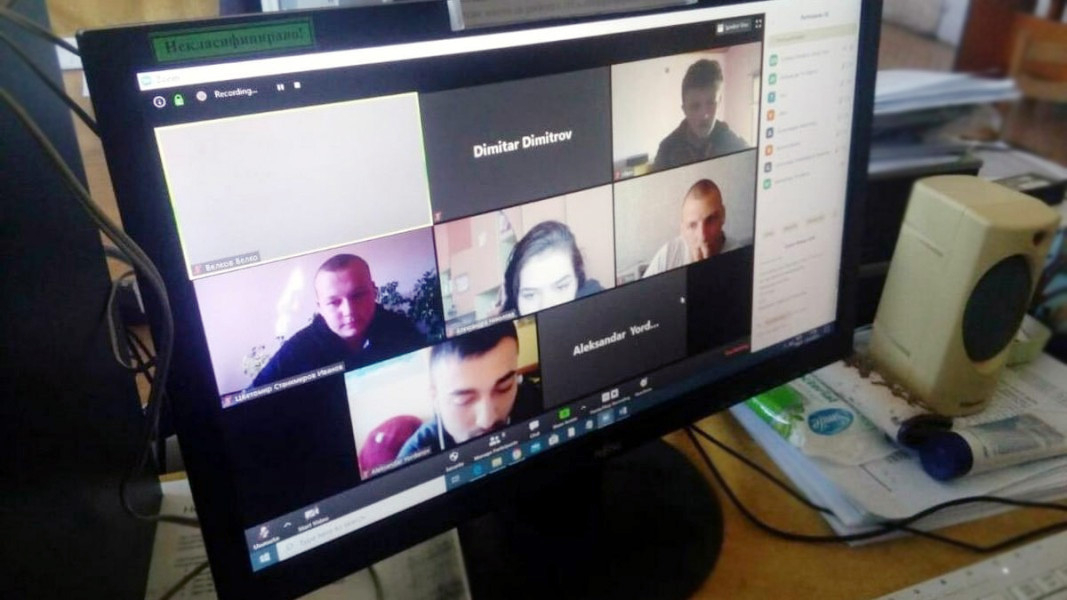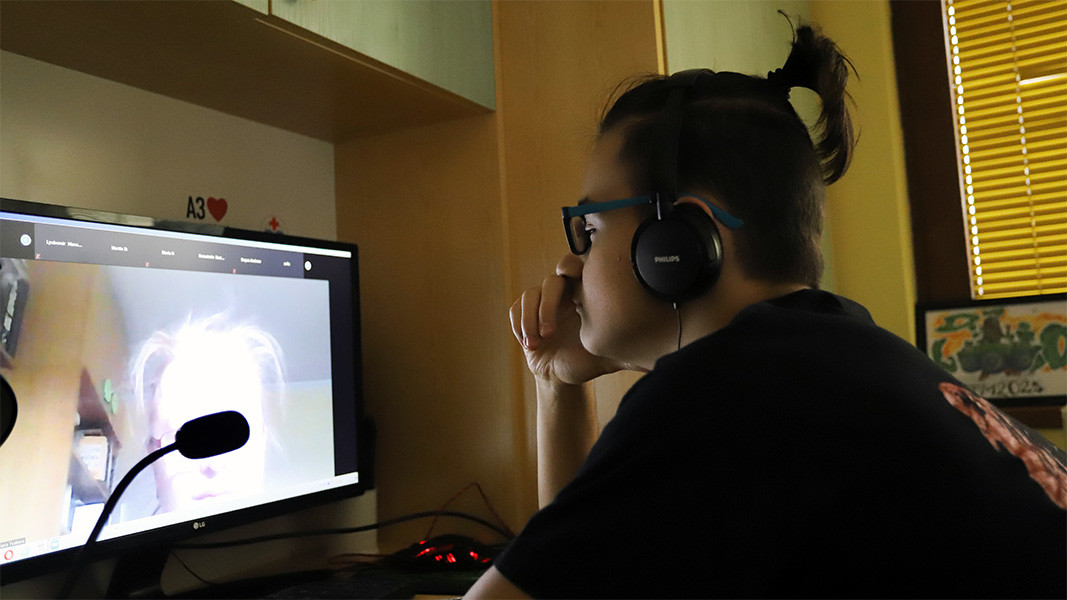More than 600 days have passed since the start of the Covid-19 pandemic. A time that completely changed our way of life, made us more alienated and lonely than ever. The fear of survival has affected our daily lives, forcing us to rethink our responsibilities and priorities, to limit our meetings with people close to our hearts who are outside our family circle, as well as to seek new methods of self-education and self-improvement.
The current model of learning, both for school and university students, was also very limited. Teachers, pupils, professors and university students had to adapt quickly to the insufficiently represented online learning environment in Bulgaria. And if for the younger ones, this change did not cause much difficulty, then for the older ones, working online turned out to be a difficult test. It is the rapid adaptation to the new environment and the development of the learning material in a way that allows for clearer teaching and understanding online that often raises questions about the effectiveness of this type of educational process. And the prospects of this process ending soon seems slim.

Students are believed to be one of the virus carriers, even if they carry the virus asymptomatically. That is why the Deputy Minister of Health Georgi Yordanov recommends that they switch again to an online training format. The situation with university students is not much different. At least that's what the findings of the newly published handbook "Trends in Online Education" by Ludmila Kirilova, a university lecturer at Sofia's St. Kliment Ohridski University, show. There are three main aspects to the development of this process, she says in an interview for the BNR’s Hristo Botev channel:
"These are the technical provision of teachers, students, facilities in higher education institutions. It is noteworthy that it is insufficient, perhaps because the pandemic and the ongoing unforeseen online training has taken its toll. Another thing we observed during the research was the preparation of the teachers, who, in addition to making sense of and explaining the material studied to their students, had to deal with technical problems as well as problems provoked by the poor internet connection. The third element I study is the students themselves and their attitude towards the educational process."
The difference in internet connectivity in Sofia, Plovdiv, Varna and other smaller towns in the country is large, according to another conclusion from the study. This leads to frequent interruptions, poor visual image, sound and connection between the participants in the process, which distracts them and makes training ineffective.

One of the main methods used to compile the handbook are the many surveys with students and professors from Bulgarian and foreign universities.
What does the general opinion show?
"The fact that one can join and work from anywhere is extremely convenient”, explains Lyudmila Kirilova. “It saves time, transport, and many university students work and it is easier for them to be able to join only for the period of the lecture. It is good that the platform we use allows us to record our lectures and each of the students can hear them as many times as they need. They also have access to additional materials and literature”, continues the lecturer in the Department of Japanese Studies at the oldest university in Bulgaria.
Although a few steps behind other European countries in terms of online learning, Bulgaria is quickly catching up as the process of digitalization in education becomes irreversible. More and more of the materials needed for students' education will be sent and received online, as the meetings between them and the teachers will become less and less frequent.
Compiled by: Yoan Kolev /based on an interview with Anelia Dimitrova, BNR-Hristo Botev channel/
Photos: BGNESEvery child dreams of having all the time in the world in which to play and enjoy piles of sweet delights. One of the most favorite, of course, is His Majesty the Chocolate. The first records of its appearance can be found as early as 2,000 years before..
A little over 1,450 Leva is the sum needed per month by an individual living in a one-person household, and a total of 2,616 Leva for the monthly upkeep of a three-member household - as is the most widespread model in Bulgaria at the moment (two..
The traditional "Easter Workshop" will be held from April 23 to 26 in the Ethnographic Exposition of the Regional History Museum - Pazardzhik. Specialists from the ethnographic department of the museum will demonstrate traditional techniques and..
A little over 1,450 Leva is the sum needed per month by an individual living in a one-person household, and a total of 2,616 Leva for the monthly..
The traditional "Easter Workshop" will be held from April 23 to 26 in the Ethnographic Exposition of the Regional History Museum - Pazardzhik...
Every child dreams of having all the time in the world in which to play and enjoy piles of sweet delights. One of the most favorite, of course, is His..

+359 2 9336 661
